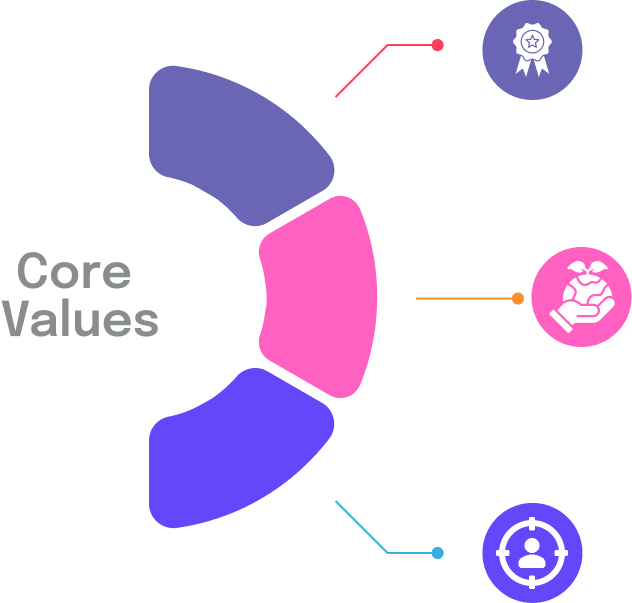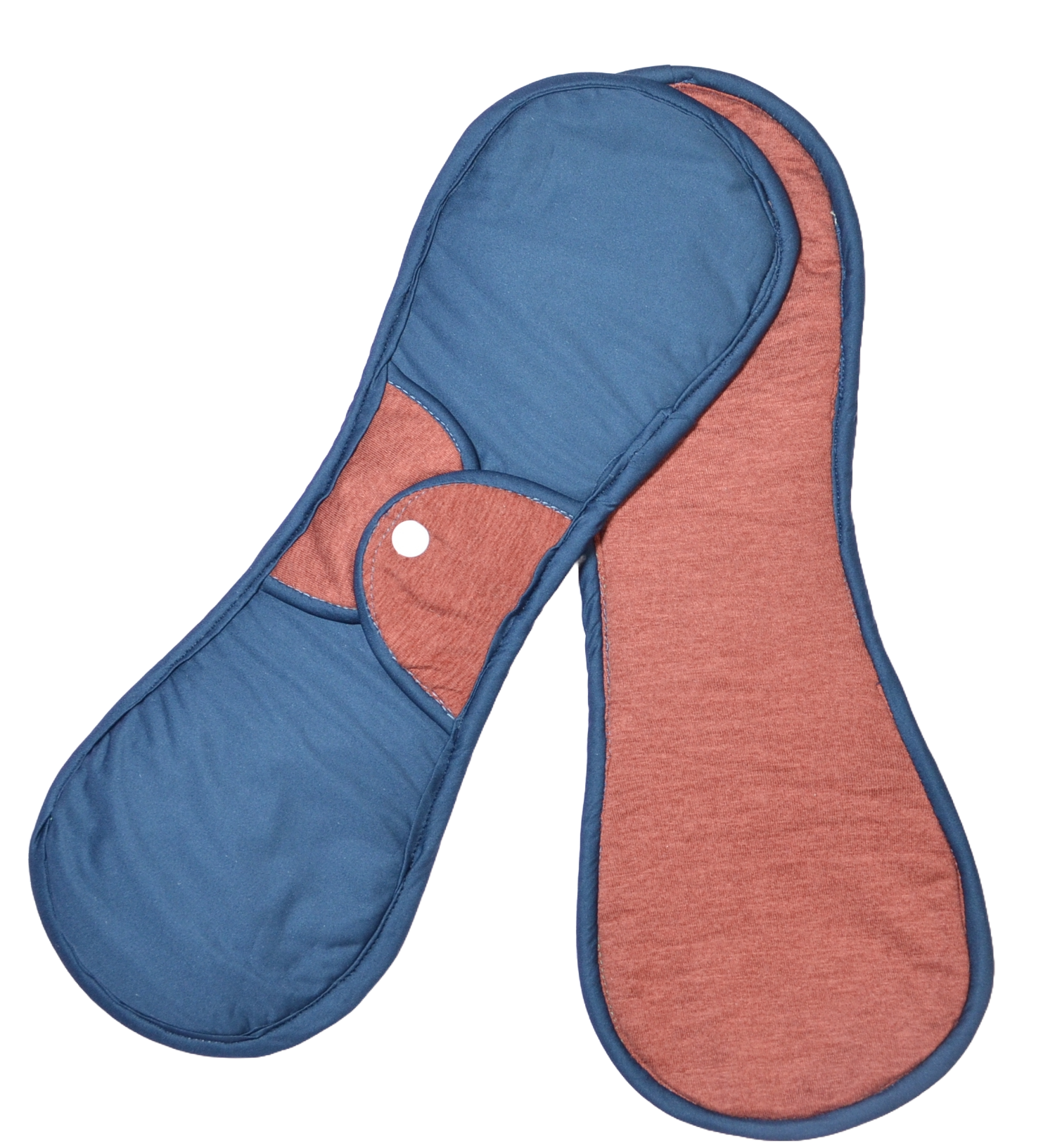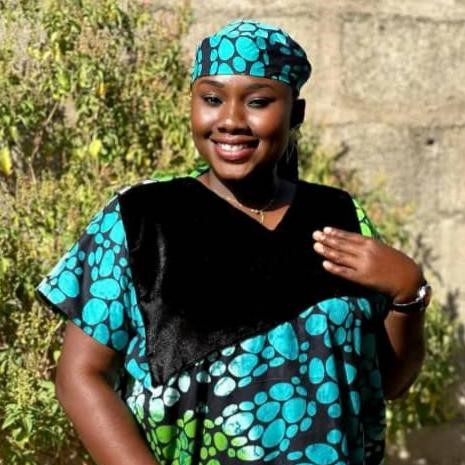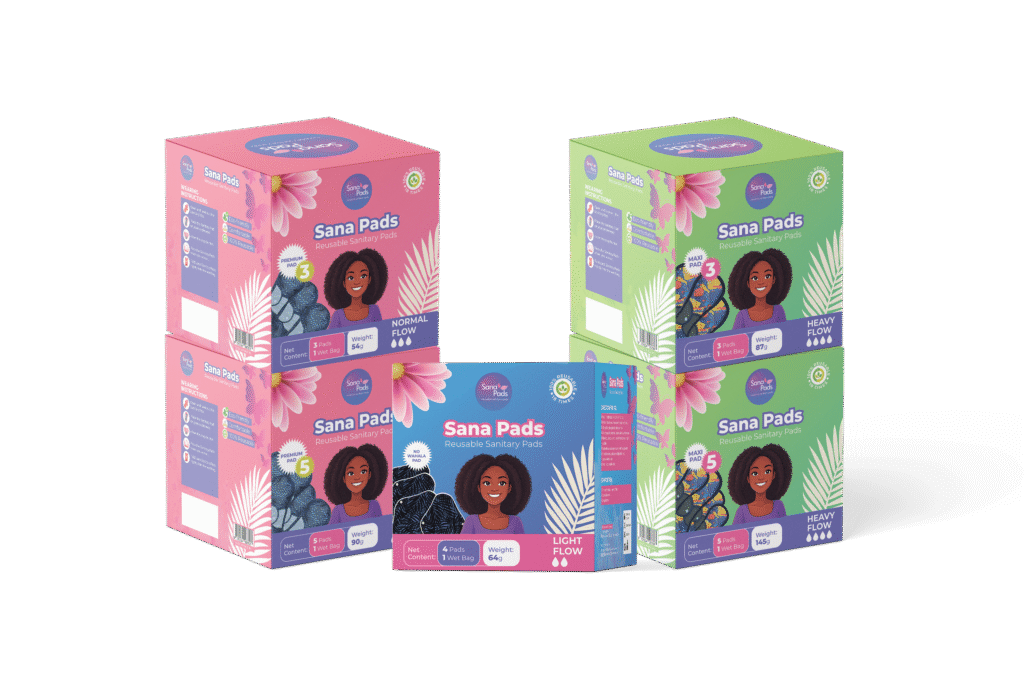Why Micro-plastic-free Sanitary Pads Are Essential for Nigerian Women's Health
When 14-year-old Zainab from Kano started experiencing constant rashes during her periods, her mother thought it was just part of growing up. However, after switching to plastic-free sanitary pads, the irritation disappeared completely. This story isn’t unique—across Nigeria, countless women are discovering that the “convenient” disposable pads they’ve been using may be harming their health in ways they never imagined.
The hidden culprit? Microplastics embedded in conventional sanitary pads, which can pose serious risks to women’s reproductive health and overall well-being.
What Are Microplastics and Why Should You Care?
The Hidden Plastic Problem in Regular Pads
Microplastics are tiny plastic particles smaller than 5mm that have infiltrated nearly every aspect of our daily lives. Unfortunately, conventional sanitary pads are among the worst offenders. Most commercial pads contain up to 90% plastic materials, including polyethylene, polypropylene, and other synthetic compounds.
These plastics serve various functions in conventional pads—they make them waterproof, improve absorption, and enhance comfort. However, recent research reveals that these materials can fragment into microscopic particles during use, potentially entering your body through your most sensitive areas.
How Microplastics Enter Your Body During Menstruation
During menstruation, your vaginal area becomes more permeable and sensitive. Moreover, the warmth and moisture create ideal conditions for microplastic particles to break away from conventional pads. These tiny particles can then be absorbed through the vaginal walls, which are highly vascular and allow substances to enter your bloodstream directly.
Research published in the International Journal of Molecular Sciences shows that vaginal tissue readily absorbs microplastics, leading to cellular damage and potential long-term health effects. Furthermore, these particles don’t break down naturally in your body—they accumulate over time.
Why Nigerian Women Are Particularly at Risk
Nigerian women face unique challenges when it comes to microplastic exposure from sanitary products. Limited access to information about product ingredients means many women unknowingly use plastic-heavy products for decades. Additionally, the hot, humid climate in many parts of Nigeria can accelerate the breakdown of plastic materials in pads, increasing microplastic release.
Economic constraints also mean many Nigerian women use cheaper, lower-quality products that often contain higher levels of harmful plastics and chemicals. Consequently, the very products marketed as “affordable solutions” may be causing long-term health problems.
The Health Risks of Plastic-Containing Sanitary Pads
Reproductive Health Concerns You Need to Know
The reproductive system is particularly vulnerable to microplastic exposure. Studies indicate that these particles can disrupt hormone function, potentially affecting fertility and menstrual cycles. Additionally, microplastics can carry harmful chemicals like phthalates and BPA, which are known endocrine disruptors.
For young Nigerian women just starting their menstrual journey, early exposure to these chemicals can have lasting effects on reproductive development. Similarly, women planning families should be especially concerned about how microplastics might affect their ability to conceive and maintain healthy pregnancies.
Skin Irritation and Allergic Reactions
Many women experience recurring rashes, itching, or burning sensations during their periods without realizing their pads might be the cause. Plastic materials in conventional pads can trigger allergic reactions, especially in Nigeria’s hot climate where increased sweating can worsen these effects.
The chemicals used to manufacture plastic components can also cause contact dermatitis. Over time, repeated exposure can lead to chronic skin problems that affect your comfort and confidence during menstruation.
Long-term Effects on Vaginal Health
Perhaps most concerning is the potential for microplastics to disrupt the delicate balance of vaginal flora. Your vagina maintains a carefully balanced ecosystem of beneficial bacteria that protects against infections. However, plastic particles and associated chemicals can disturb this balance, potentially leading to recurring infections or other complications.
Research suggests that long-term exposure to microplastics may also increase inflammation in vaginal tissues, potentially contributing to more serious health issues over time.
About us

1. Excellence
2. Environmental Sustainability
Empowering women sustainably with eco-friendly, reusable sanitary pads.
3. Customer-Centric
serve.
The Hidden Risks of Menstrual Cups: Not All "Eco-Friendly" Options Are Safe
Microplastics in Silicone Menstrual Cups
While menstrual cups are often marketed as eco-friendly alternatives, many contain concerning levels of microplastics. Most cups are made from medical-grade silicone, which, while safer than many plastics, can still release microplastic particles over time, especially with repeated sterilization and use.
Research has shown that silicone products can shed microscopic particles, particularly when exposed to heat during sterilization. Since menstrual cups require regular boiling for hygiene, this process may actually increase microplastic exposure for users.
Why Cups May Not Be Suitable for Every Nigerian Woman
Beyond the microplastic concerns, menstrual cups present practical challenges for many Nigerian women. Access to clean water for proper sterilization can be limited, particularly in rural areas. Additionally, the cups require a level of comfort with internal insertion that may not align with cultural preferences or personal comfort levels.
The initial cost of quality cups can also be prohibitive for many Nigerian families, despite long-term savings. Meanwhile, lower-quality cups may contain higher levels of harmful chemicals and microplastics, making them potentially more dangerous than conventional pads.
Cultural and Practical Considerations for Our Community
In many Nigerian communities, cultural beliefs about menstruation and virginity can make internal products like cups challenging to accept. Rather than forcing solutions that don’t fit our cultural context, it’s better to focus on external products that are both safe and culturally appropriate.
This is where microplastic-free reusable pads offer the perfect solution—they provide the safety and environmental benefits without the cultural or practical barriers associated with internal products.
How to Identify Microplastic-Free Sanitary Pads
Reading Labels: What to Look For and Avoid
When shopping for sanitary pads, learning to read labels is crucial. Avoid products containing polyethylene (PE), polypropylene (PP), or other synthetic polymers. Instead, look for products made from natural materials like organic cotton, bamboo, or hemp.
Be wary of marketing terms like “soft” or “silky”—these often indicate synthetic materials. Similarly, “super absorbent” products frequently contain plastic polymers that can release microplastics.
Natural Materials That Keep You Safe
The safest sanitary pads use natural, breathable materials throughout their construction. Organic cotton is excellent for the top layer as it’s soft, absorbent, and won’t irritate sensitive skin. Bamboo fiber offers natural antibacterial properties and excellent absorption without plastic additives.
Hemp is another excellent natural material that’s both absorbent and durable. These materials allow air circulation, reducing the risk of infections while providing reliable protection without harmful chemicals.
Questions to Ask Your Supplier or Distributor
When considering bulk purchases for schools or NGO programs, ask specific questions about product composition. Request detailed ingredient lists and ask about third-party testing for microplastics. Reliable suppliers should be transparent about their manufacturing processes and materials.
Don’t be afraid to ask about the waterproof layer—many products claim to be “natural” while still using plastic backing. True microplastic-free products use natural waterproofing methods or innovative designs that don’t require plastic barriers.
Our Reusable Sanitary Pads
Light Flow
Thinner and ligher pad designed for
the last days of your period.
Contains leakproof layer at the back.

Normal Flow


Sana Pads: Your Trusted Microplastic-Free Solution
Our Chemical-Free, Natural Materials
At Sana Pads, we’ve made a commitment to completely eliminate microplastics from our products. Our pads use only natural, hypoallergenic materials that are safe for your body and the environment. The absorbent layers are made from bamboo fibers, which naturally resist bacteria and odors without chemical treatments.
Our waterproof backing uses innovative natural materials that provide reliable protection without plastic. This means you get the security you need during your period without exposing yourself to harmful microplastics or chemicals.
How We Ensure Zero Plastic in Our Products
We rigorously test our products to ensure they contain no microplastics. Every batch undergoes quality control testing, and we work directly with suppliers who share our commitment to plastic-free manufacturing. Our transparent supply chain means you can trust that every Sana Pad is truly free from harmful plastics.
Additionally, our local manufacturing in Nigeria means shorter supply chains and better quality control. We can personally oversee every step of production to ensure our high standards are maintained.
Real Stories from Nigerian Women Who Made the Switch
Fatima from Lagos shares: “I was skeptical about reusable pads at first, but after learning about microplastics, I decided to try Sana Pads. The difference was immediate—no more rashes, no more discomfort. Plus, I’m saving money every month.”
Similarly, Grace, a teacher in Abuja, reports: “I’ve been using Sana Pads for six months now. Not only do I feel better physically, but I feel good knowing I’m not exposing my students to harmful chemicals when I recommend these products.”
Making the Switch: A Practical Guide for Nigerian Families
Cost Comparison: Plastic vs. Plastic-Free Options
While microplastic-free reusable pads require a higher initial investment, they offer significant long-term savings. A set of Sana Pads can last for years with proper care, eliminating the monthly expense of disposable products.
For a typical Nigerian woman, the cost savings over just one year can be substantial. Additionally, when you consider the potential health costs of microplastic exposure, the investment in safer products becomes even more valuable.
Teaching Your Daughter About Safer Period Products
Starting the conversation about menstrual health early is crucial. Explain to your daughter why choosing microplastic-free products matters for her health and future. Make it a positive discussion about taking care of her body and making smart choices.
Show her how to care for reusable pads properly, making it part of her regular hygiene routine. This education empowers her to make informed decisions about her health throughout her life.
What Schools and NGOs Need to Know
Educational institutions and NGOs play a crucial role in promoting healthy menstrual practices. When selecting products for distribution programs, prioritize microplastic-free options even if they cost slightly more upfront.
The long-term health benefits for students and beneficiaries far outweigh the initial cost difference. Additionally, providing education about microplastics helps build awareness that can influence purchasing decisions for years to come.
Time to get involved
Environmental Impact: Beyond Personal Health
How Plastic Pads Affect Nigerian Communities
The environmental impact of plastic-containing sanitary pads extends far beyond individual health. These products contribute to Nigeria’s growing plastic waste problem, with most ending up in landfills or, worse, in waterways and communities.
In rural areas, improper disposal of plastic pads can contaminate water sources and harm local ecosystems. The microplastics from these products eventually enter the food chain, affecting the health of entire communities.
The Connection Between Period Poverty and Plastic Pollution
Period poverty often forces women to choose the cheapest available products, which are typically high in plastic content. This creates a cycle where economic disadvantage leads to greater exposure to harmful chemicals, potentially causing health problems that further strain limited resources.
By supporting microplastic-free alternatives, we can break this cycle and provide healthier options that are also economically sustainable in the long term.
Building a Sustainable Future for Our Daughters
Choosing microplastic-free sanitary products is an investment in our daughters’ future. We’re not just protecting their immediate health—we’re also preserving the environment they’ll inherit.
Every plastic-free product choice sends a message to manufacturers about what Nigerian women value. This consumer pressure can drive innovation toward safer, more sustainable menstrual products across the entire industry.
Taking Action: Your Next Steps
Questions to Ask Before Your Next Purchase
Before buying any sanitary product, ask yourself: What materials are used? Are there any plastic components? Has the product been tested for microplastics? Can I get detailed ingredient information?
Don’t be satisfied with vague marketing terms. Demand transparency from manufacturers and suppliers. Your health is worth the extra effort to ensure you’re choosing truly safe products.
How to Advocate for Plastic-Free Options in Your Community
Share your knowledge about microplastics with other women in your community. Organize discussions at community centers, schools, or religious gatherings. The more women understand these risks, the stronger our collective voice becomes for safer products.
Support local businesses that prioritize health and sustainability. When you choose companies like Sana Pads, you’re voting with your wallet for a healthier future.
Resources for Further Learning
Stay informed about developments in menstrual health research. Follow reputable health organizations and advocacy groups that provide evidence-based information about product safety.
Connect with other women who have made the switch to microplastic-free products. Sharing experiences and tips can help overcome any challenges and build a supportive community around healthier choices.
Conclusion
The time has come to prioritize your health and the health of future generations. Microplastic-free sanitary pads aren’t just a luxury—they’re a necessity for protecting women’s reproductive health and environmental well-being.
At Sana Pads, we’re committed to providing safe, affordable, and sustainable menstrual products for Nigerian women. Our reusable pads offer the protection you need without the health risks associated with plastic-containing products.
Ready to make the switch? Contact us today to learn more about our products or to discuss bulk orders for your school or organization. Visit our product pages to find the perfect Sana Pads for your needs, or check out our FAQ for more information about caring for your microplastic-free pads.
Your health matters. Your future matters. Choose microplastic-free. Choose Sana Pads.
Testimonials
Women around the world patronize Sana

Sana Pad is very good, makes u feel comfortable and free, i love the pads the best ever!.
Susan Eweka
Women around the world patronize Sana

Sana pads have been a game-changer for me! Comfortable, eco-friendly, and cost-effective, they’ve given me confidence and peace of mind during my periods. No more worries about leaks or waste – Sana’s got me covered! Highly recommend!
Blessing Augustine David
Women around the world patronize Sana

I’ve tried several reusable pad brands, but Sana stands out for its exceptional quality, comfort, and durability. The design is thoughtful, and the materials are gentle on my skin. Switching to Sana has not only reduced my environmental footprint but also saved me money in the long run. I’m grateful for this sustainable solution!
Blessing Madubuike

Author: Margaret Ochegbudu

